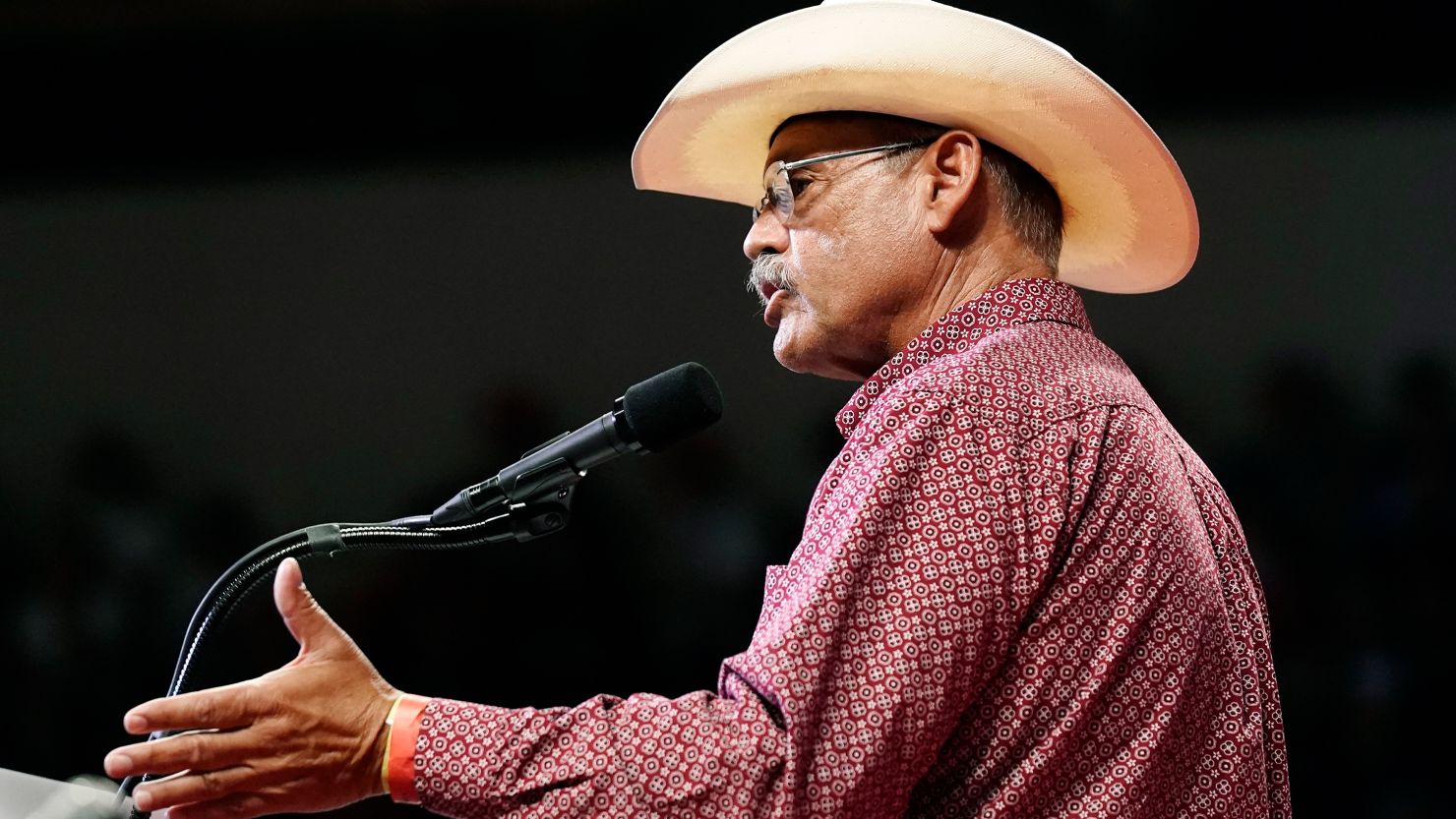Republican candidates who espouse Donald Trump’s false claims that the last presidential election was stolen are steadily advancing through primaries for positions to oversee the next one in swing states.
The latest instances came this week in Arizona and Michigan. Mark Finchem, who attended the January 6, 2021, rally before the attack on the US Capitol but has denied he participated in the riot, won the GOP nomination for Arizona secretary of state, the state’s top election official. Abraham Hamadeh, who has pledged to “take the fraud in our 2020 election seriously,” emerged as the Republican nominee for Arizona attorney general.
And Kari Lake, an outspoken promoter of election conspiracy theories, will win the state’s Republican gubernatorial primary, CNN projected Thursday.
In Michigan, Tudor Dixon prevailed as the GOP nominee for governor. Dixon said at a debate in May that she believes Trump won the state in 2020, though during an interview with Fox News last weekend she did not directly answer if she thought the election was stolen.
Two other election deniers are likely to join her on the ballot. The state party endorsed Kristina Karamo, who has claimed she witnessed irregularities during the last election, for secretary of state and Matthew DePerno, who was involved in a legal case challenging the 2020 results, for attorney general at a convention in April and will make its formal picks for those positions later this month.
Results in Tuesday’s races come after Jim Marchant, who has said his top priority would be to “overhaul the fraudulent election system,” won the Republican nomination for secretary of state in Nevada in June. And in May, Pennsylvania Republicans nominated Doug Mastriano, a leader in the push to overturn the 2020 election results in the state, for governor. If he wins the general election, Mastriano would have the ability to appoint the secretary of state.
All four states helped seal Joe Biden’s 2020 victory, and will likely be critical again in determining the outcome of the 2024 presidential election. Each of these candidates was endorsed by Trump, who applied pressure on just these sort of state officials to overturn the results of the last election, and has given every indication he wants to run for the White House again.
Despite warnings from voting rights advocates and even some members of their own party – as well as a complete lack of evidence of widespread fraud – Republicans who embrace lies about the last election have repeatedly experienced success in the 2022 primary season.
Among the key states from the 2020 race, Georgia stands out as the notable exception: Gov. Brian Kemp, Secretary of State Brad Raffensperger and Attorney General Chris Carr defeated Trump-backed challengers who echoed the former President’s unfounded election claims.
But the reality is that nationwide, a majority of Republicans agree with those claims. A recent CNN poll found that two-thirds of Republicans said that Biden’s win was not legitimate and that 72% said the party should be “very” or “somewhat” accepting of candidates who believe the 2020 election was stolen.
The Point: As long as Trump’s false claims of fraud remain a mainstream view within the Republican Party, election deniers will continue to rise up the ranks. That could have unprecedented implications for how elections across the country are run.
This story has been updated to include CNN’s projection in the Arizona gubernatorial primary.

